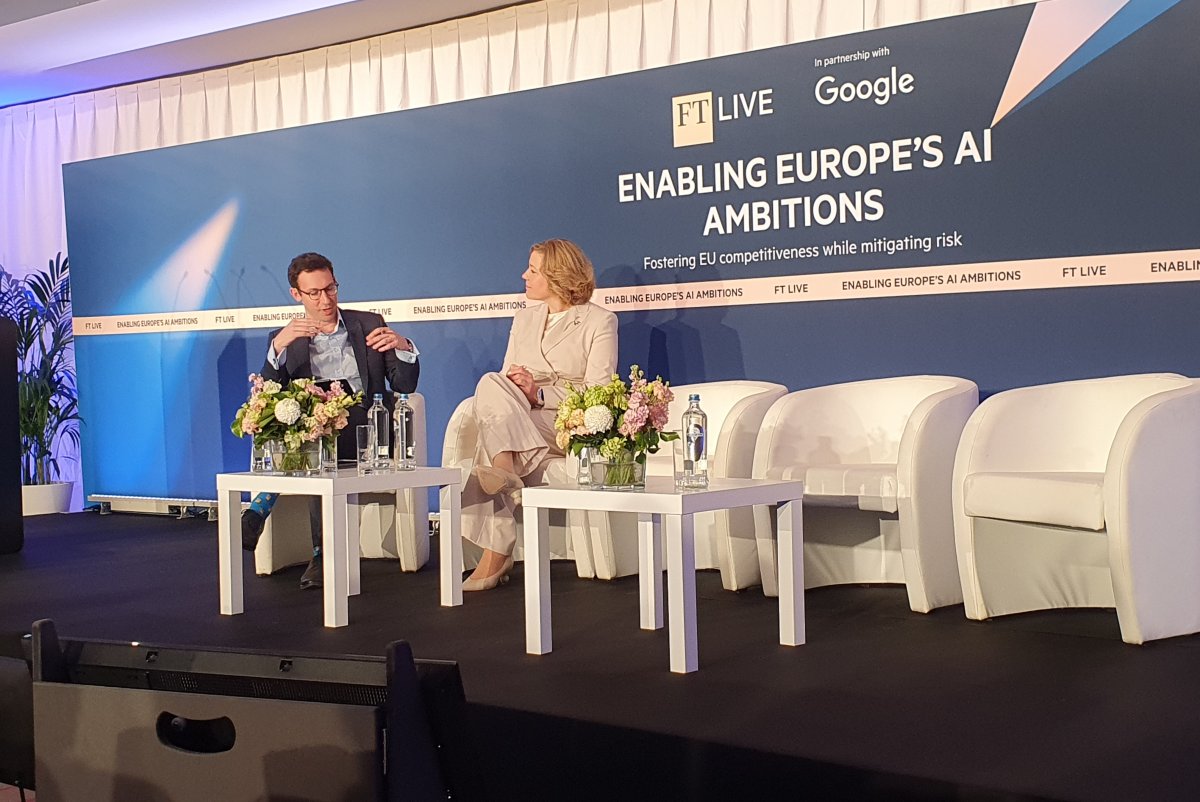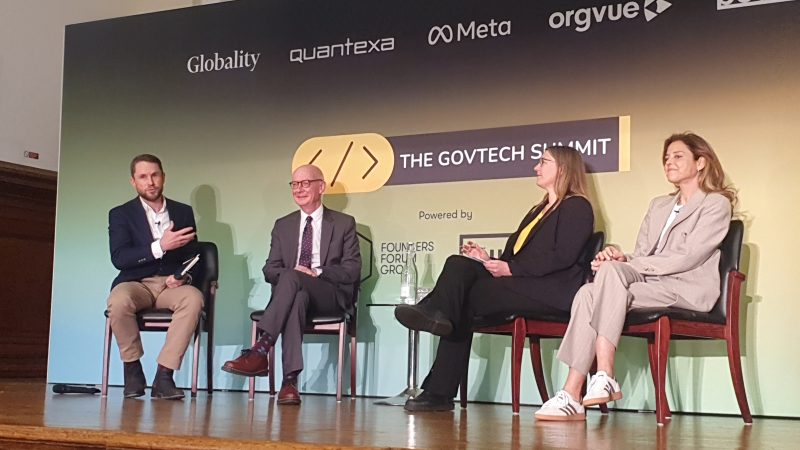Europe’s AI: Striking a Balance Between Innovation and Regulation

Leading policymakers, industry experts, and academics gathered at the Square Convention Centre in Brussels on 25 March 2025 for the Financial Times and Google-hosted summit, Enabling Europe’s AI Ambitions: Fostering EU Competitiveness While Mitigating Risk. The event tackled pressing questions on AI regulation, innovation, and Europe’s global standing in the race for artificial intelligence supremacy.
With the European Union’s Artificial Intelligence Act now in place - the world’s first binding rulebook on AI - the summit focused on the next crucial phase: implementation. European Commission President Ursula von der Leyen, who spearheaded the Act’s introduction, has made AI a key pillar of her second-term agenda. However, with economic growth slowing and competition from the United States and China intensifying, the challenge remains: how can Europe foster a thriving AI sector while ensuring regulatory safeguards?
The AI Act as an Enabler, Not an Obstacle
Henna Virkkunen, the European Commission’s new tech chief, opened the summit with a keynote interview, emphasising the need for a regulatory approach that nurtures innovation rather than stifling it. “Europe must be the best place in the world to develop trustworthy AI,” she asserted. The key, she argued, lies in leveraging the AI Act as an enabler rather than a constraint.
Discussions centred around balancing digital sovereignty with technological growth. Experts debated whether the EU should build its own AI infrastructure to support homegrown companies or pursue stronger global collaboration. The panel on Building AI Infrastructure While Delivering on Europe’s Clean Energy Future highlighted the challenge of aligning AI development with climate commitments, particularly as data centres and high-performance computing become energy-intensive.
AI and Cybersecurity: Managing New Threats
Another critical topic was AI’s role in cybersecurity. As AI technology advances, so do the threats it poses. A panel featuring Eva Maydell MEP and Stéphane Duguin, CEO of the CyberPeace Institute, discussed how policymakers could mitigate risks from AI-powered surveillance and misinformation. Establishing industry standards and ethical guidelines emerged as key solutions to combat AI-driven cyber threats.
Europe’s Place in the Global AI Race
One of the most highly anticipated discussions focused on Europe’s global competitiveness. Experts acknowledged that the EU’s regulatory-first approach differs from the US and China’s more aggressive AI investment strategies. Audrey Herblin-Stoop, Vice President of Global Public Affairs at Mistral AI, highlighted the need for a “pro-innovation regulatory framework” to keep European AI companies competitive. The panel also explored how cross-border data flows and interoperability could be enhanced to strengthen Europe’s AI ecosystem.
Upskilling the Workforce for an AI-Powered Future
The workforce implications of AI were another major theme. As automation reshapes industries, policymakers must ensure that workers are equipped with the necessary digital skills. Andrea Renda, Director of Research at CEPS, stressed the importance of AI literacy across all levels of education and professional training. The discussion also explored strategies for ensuring a just transition for workers whose jobs may be displaced by AI advancements.
Democratising AI for Societal Good
The closing session examined how AI can benefit all citizens, not just major corporations and tech giants. With participation from Euroconsumers CEO António Balhanas and MEP Michael McNamara, the discussion underscored the need for AI to support public services, from healthcare to infrastructure. Ensuring that start-ups and SMEs can also harness AI technology was seen as crucial for maintaining Europe’s digital inclusivity.
A Defining Moment for Europe’s AI Future
As Europe steps into a new AI-driven era, the summit made one thing clear: regulation alone will not determine the bloc’s success. Investment in infrastructure, global collaboration, cybersecurity resilience, and workforce readiness are all equally critical. With the AI Act now in place, the next five years will define whether Europe emerges as a global leader in artificial intelligence—or falls behind in the race for technological dominance.

